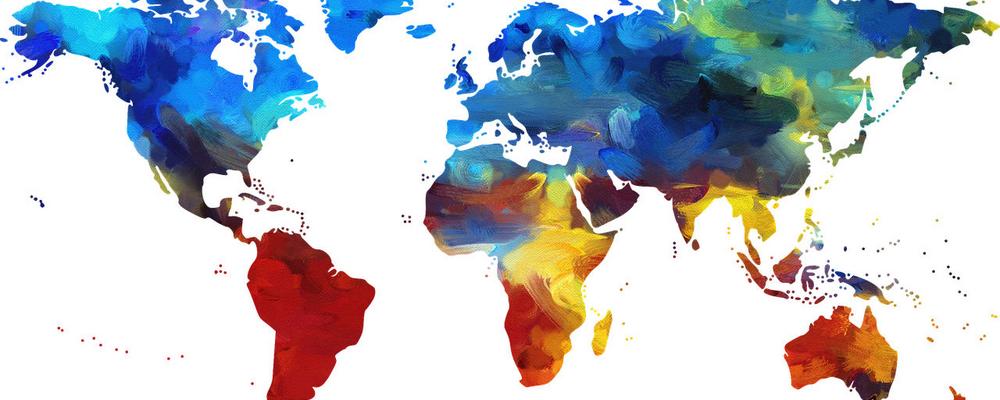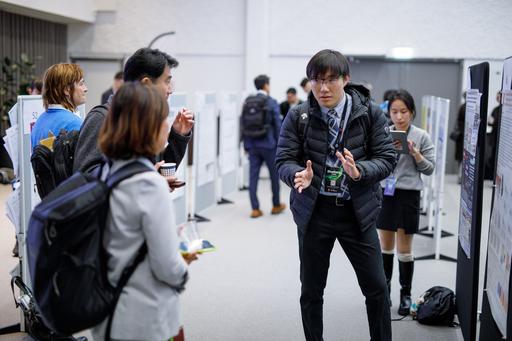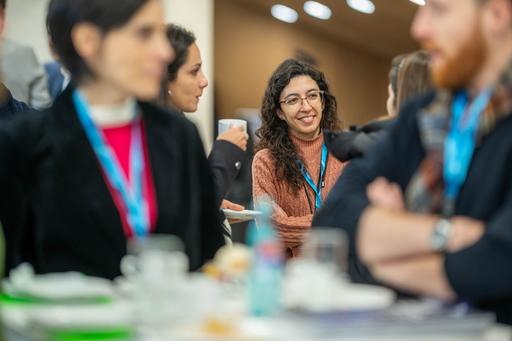
Networks and partner universities
The University of Gothenburg's vision is to be a university for the world – an international higher education and research institution that takes responsibility for the development of society while helping to build a sustainable world. We do this in many ways, including through collaborations with universities around the world in international networks and projects.
Collaborations in Africa
The Consortium for Advanced Research Training in Africa, CARTA
CARTA is a collaboration led by the African Population and Health Research Center (APHRC), Kenya, and the University of the Witwatersrand (Wits), South Africa. CARTA's goal is to support the development of research environments and postgraduate education in Africa, with the aim of improving human health and living conditions. The consortium consists of universities and research institutes in Sub-Saharan Africa, as well as partners in Europe, Chile, Canada and the United States. The Sahlgrenska Academy is one of the partners and the School of Public Health and Community Medicine hosts the coordinating function of the Non-African Partners in CARTA.
Inclusive Green Economy in Practice, IGE
IGE is a capacity development program for civil servants in East Africa on economic policy instruments for achieving a just green transition. It bridges the gap between research and policy to get evidence-based practices.
The program is led by Environment for Development (EfD) at the University of Gothenburg, and key partners are universities and other actors in Ethiopia, Kenya, Rwanda, Tanzania, and Uganda.
South Africa-Sweden University Forum, SASUF
SASUF is a collaboration project between Swedish and South African universities. The objective is to strengthen the ties between Sweden and South Africa within research, education and innovation, with the UN sustainability goals in focus. The project also includes actors outside of academia and connect universities, research funding agencies, industries, ministries and the society in general.
- Contact person at the University of Gothenburg: Kristin Rådesjö, International Centre.
- sasuf.org
About
Listed on this page you will find the institutional-level networks and projects that are university-wide, which means that they are sanctioned by the university leadership and in most cases have a trans-disciplinary focus.
You will also find a few networks that are discipline specific and therefore handled at departmental level.
Are you employed at the University of Gothenburg?
In the staff portal, you can find more information about the university-wide networks and projects in which GU is involved.
Collaborations in Asia
MIRAI
MIRAI is a collaboration between Swedish and Japanese universities with the ambition to contribute to the development of long-term cooperations between the countries. There is a clear focus on early career researchers and a few appointed global challenges is the core of MIRAI. The collaboration also includes actors outside of the academies such as research funding agencies, industries, ministries and embassies.
- Contact person at the University of Gothenburg: Kristin Rådesjö, International Centre.
- mirai.nu

Nordic Centre
Nordic Centre is a network for collaboration between Nordic and Chinese universities. The Centre is located on the campus of Fudan University in Shanghai in a building with offices, meeting- and conference rooms used to arrange research seminars, courses and cultural activities of mutual interest to Nordic and Chinese scholars and students.
- Contact person at The University of Gothenburg: Linn Gabrielsson, International Centre.
- nordiccentre.net
Sweden-Korea Education, Research and Innovation Collaboration, SKERIC
SKERIC is a joint project between eight leading universities in Sweden and South Korea aiming to increase collaboration on five major societal challenges. The project consists of three programs that aim to equip young researchers, academic leaders and innovators with tools, skills, and networks address these challenges and advocate for democracy and academic freedom.
- Contact person at the University of Gothenburg: Linn Gabrielsson, International Centre.
- skeric.org
Collaborations in Europe
ELIA
ELIA is a globally connected European network that provides a platform for exchange and development in higher arts education. It represents 260 members in 48 countries, across all art disciplines.
The University of Gothenburg is a member in ELIA through the Artistic Faculty.
EURAXESS
The EURAXESS is a pan-European initiative delivering information and support services to professional researchers regardless of their career stage. Backed by the European Union and its member states, it supports researcher mobility and career development, while enhancing scientific collaboration between Europe and the world. Welcome Services coordinates the EURAXESS Network Projects at the University of Gothenburg and is in charge of the Swedish EURAXESS portal, a central source of information about Sweden as a research nation.
The European Marine Board, EMB
EMB is a European think tank in marine science policy. It provides a platform to advance marine research and to bridge the gap between science and policy.
The University of Gothenburg is member of The European Marine Board through the Faculty of Science.
The European University Association, EUA
EUA has over 800 members in 48 European countries and is the largest organization representing universities in the political debate at the EU level.
- Contact person at the University of Gothenburg: Karolina Catoni, International Centre
- eua.eu
EUTOPIA
EUTOPIA is a network of six universities in Europe with a joint and long-term vision of creating a strong alliance with free movement of students, researchers, teachers and other staff. The alliance has received funding from the European Commission’s prominent European Universities Initiative.
The University of Ljubljana heads the network. The University of Gothenburg has taken the lead on issues concerning research, knowledge and innovation.
- Contact at the University of Gothenburg: eutopia@gu.se, International Centre
- About Eutopia

Inspireurope+
Inspireurope+ is a collaboration between ten partner organizations in Europe aiming to improve support for researchers at risk. These scholars may be unable to work in their home countries due to discrimination, persecution or violence. The project strives to ensure that the European labor market can better benefit from the expertise that these scholars possess, for example by offering enhanced career support to at-risk scholars. There is also a focus on influencing policy at both the European and national levels to increase the inclusion of at-risk scholars in EU calls, scholarships, and similar opportunities.
- Contact at the University of Gothenburg: Sarah Blichfeldt, International Centre
- Inspireurope, sareurope.eu
Nordic Association of University Administrators, NUAS
NUAS consists of about sixty Nordic institutions of higher education. The purpose of the network is to develop contacts and establish networks among Nordic universities at all administrative levels.
The activities of NUAS are governed and planned by the university directors in the steering group. The work primarily takes place within various planning groups (covering areas such as finance, personnel, communication, and internationalization) that facilitate the exchange of experiences, build networks, and provide professional development.
The secretariat is located in Stockholm.
- Contact at the University of Gothenburg: Karolina Catoni, International Centre
- nuas.org
Nordlys
Nordlys is a university-wide network for exchange studies in the Nordic countries. Through the network, exchanges are made possible at 26 universities in Finland, Norway, Denmark, Iceland, Greenland and the Faroe Islands. Scholarships for outgoing students are currently financed by Nordplus funds. The network is interdisciplinary and enables exchange studies for students who wish to study courses outside their main subject area.
Swetaly
Swetaly is a network that strengthens the relationships between Swedish and Italian institutions of higher education in the areas of research and higher education. Swetaly focuses on experience exchange and collaboration within three broad themes: academic freedom/researchers at risk, aging, and artificial intelligence (AI).
• Contact person at the University of Gothenburg: Sarah Blichfeldt, International Centre
Universities and Swedish Research Institutes Cooperating for Internationalization, USI
USI is a partnership between five Swedish universities and the Swedish Research Institutes in Rome, Athens, and Istanbul. The aim is to provide students, doctoral students, teachers, and researchers with awareness of and the opportunity to utilize the unique possibilities offered by the Swedish Research Institutes.
- Contact person at the University of Gothenburg; Karin Wallin, International Centre
- usinetwork.se
Collaborations in Latin America
Academic Collaboration Chile Sweden, ACCESS
ACCESS is a collaboration project between universities in Chile and Sweden. The objective is to increase interdisciplinary research collaborations around the UN's Sustainable Development Goals. Special efforts are made for PhD students. ACCESS also collaborates with embassies, ministries, and research funding agencies.
- Contact person at the University of Gothenburg; Karin Wallin, International Centre.
- accesschilesweden.org
Collaboration in North America
SIREUS
SIREUS is a three-year collaboration project between the Swedish-American Chambers of Commerce (SACC-USA) and twelve Swedish universities. The project promotes knowledge exchange in science, innovation and entrepreneurship and increase the mobility of students, trainees and researchers between Sweden and the USA.
- Contact person at the University of Gothenburg; Lena Pedersen, International Centre
- sireus.org
Collaboration involving several continents
Environment for Development, EfD
EfD is a global network of research centers established in 2007 with the purpose of increasing the use of environmental economics to reduce poverty and increase sustainability in the Global South.
Efd contributes to solving the world’s most pressing environment and development challenges through policy-relevant research, capacity development and policy engagement.
EfD Centers are now established in 15 countries around the world and the network is coordinated from a global hub at the School of Business, Economics and Law, University of Gothenburg, Sweden.
- Contact at the University of Gothenburg; Gunnar Köhlin, Environment for Development
- Web site EfD
- EfD's website at gu.se
European Teacher Education Network, ETEN
European Teacher Education Network, ETEN, has around 60 members in 20 countries. The University of Gothenburg is a member through the Faculty of Education.
International Association of Universities, IAU
International Association of Universities (IAU) is a UNESCO-based worldwide association composed of more than 600 institutions in some 130 countries. Its goal is to encourage cooperation among higher education institutions worldwide.
- Contact at the University of Gothenburg; Karolina Catoni, International Centre
- iau.net
The SDG 8 Initiative
THE SDG 8 INITIATIVE is the University of Gothenburg´s commitment to Sustainable Development Goal 8 of the 2030 Agenda. The aim is to achieve sustained, inclusive, and sustainable economic growth, full and productive employment, and decent work for all.
The University of Gothenburg, as part of the International Association of Universities (IAU) and its Higher Education and Research for Sustainable Development (HESD) Cluster, has been asked to take a lead specifically on SDG 8. Every goal has its lead university, resulting in a global network of universities coordinating different goals.
- Contact person at the University of Gothenburg: Beata Berg Malmborg, EfD
- Read more about the IAU HESD cluster on the IAU website.
- The SDG 8 Initiative
Scholars at Risk, SAR
SAR is a global network gathering over 600 universities and organizations. The network protects and promotes academic freedom worldwide, for example by providing academic sanctuary and assistance to scholars who cannot work in their home countries due to threats, persecution or risk of being censored. Every year, more than a hundred researchers are placed at foreign institutions.
The University of Gothenburg has been a member of SAR since 2013 and has hosted SAR scholars since 2015. The scholars are employed by the departments that match their respective research fields, for a period of one year, and are engaged in the regular research activities at their host departments.
A Swedish section, SAR-Sweden, was established in 2016. The primary purpose of the section is to offer professional development, support, and opportunities for experience exchange for its members – Swedish higher education institutions, academies of science, research institutions and labour unions.
SAR-Sweden is also a partner in the project Inspireurope, a platform aiming to increase the employment of researchers and increase the number of researchers at risk applying for external and particularly European research funding.
SAR-Sweden is coordinated by the University of Gothenburg.
- Contact at the University of Gothenburg: Karolina Catoni and Sarah Blichfeldt International Centre.
- scholarsatrisk.org
- sarsverige.se
- Inspireurope
Sustainable Development Solutions Network, SDSN Northern Europe
The network SDSN Northern Europe is part of a global UN initiative to identify and fill knowledge gaps, provide high-quality education for sustainable development, and provide advice and solutions for the transformation to a sustainable society.
The University of Gothenburg is a member through Gothenburg Centre for Sustainable Development (GMV).
The University of Gothenburg works actively with partner universities, having approximately 900 exchange agreements with universities across the globe. A normal academic year roughly 1,100 exchange students study in Gothenburg and the student body includes around 70 nationalities, providing a truly international atmosphere and a unique academic environment.